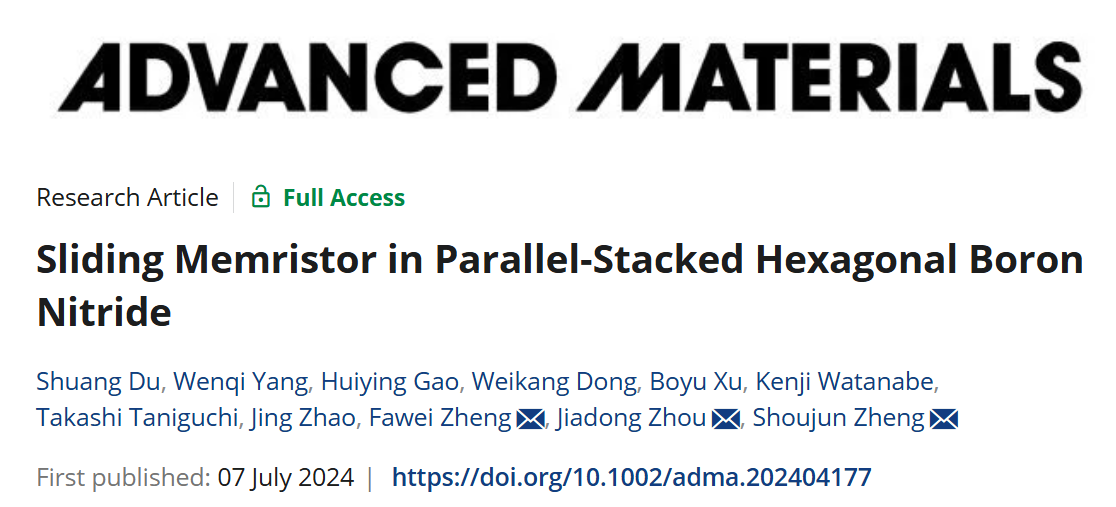Sliding Memristor in Parallel-Stacked Hexagonal Boron Nitride
来源: 作者: 发布时间:2024-07-18Abstract
Sliding ferroelectricity in 2D materials, arising from interlayer sliding-induced interlayer hybridization and charge redistribution at the van der Waals interface, offers a means to manipulate spontaneous polarization at the atomic scale through various methods such as stacking order, interfacial contact, and electric field. However, the practical application of extending 2D sliding ferroelectricity remains challenging due to the contentious mechanisms and the complex device structures required for ferroelectric switching. Here, a sliding memristor based on a graphene/parallel-stacked hexagonal boron nitride/graphene tunneling device, featuring a stable memristive hysteresis induced by interfacial polarizations and barrier height modulations, is presented. As the tunneling current density increases, the memristive window broadens, achieving an on/off ratio of ≈103 and 2 order decrease of the trigger current density, attributed to the interlayer migration of positively charged boron ions and the formation of conductive filaments, as supported by the theoretical calculations. The findings open a path for exploring the sliding memristor via a tunneling device and bridge the gap between sliding ferroelectricity and memory applications.





